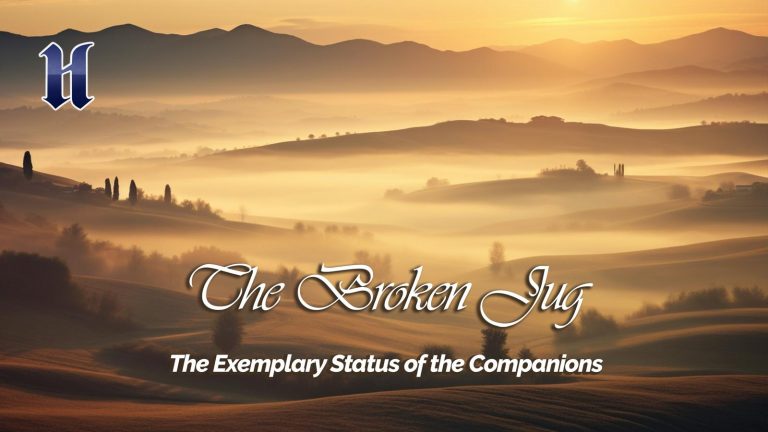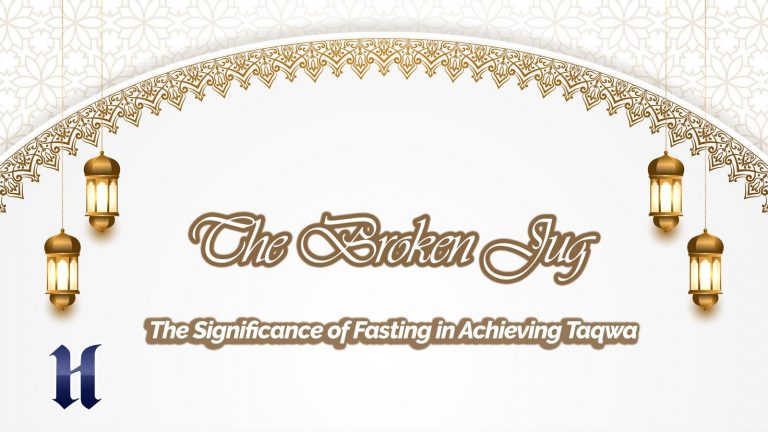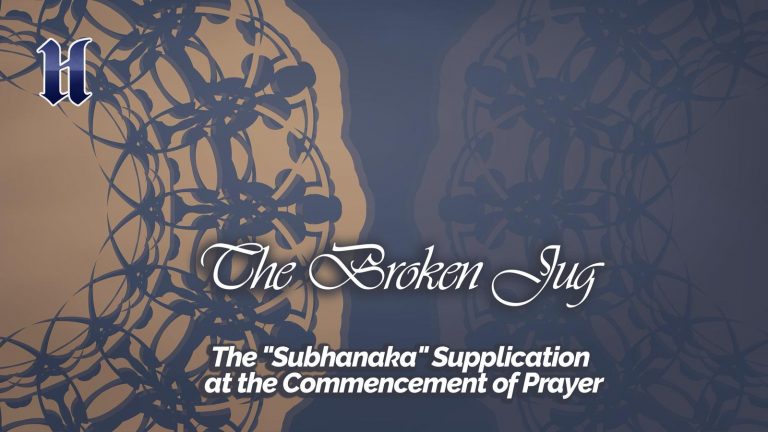Question: Could you please elucidate the four essentials mentioned in the following oft-repeated supplication of the noble Prophet: “O God! I beseech You for guidance, piety, decency, and dignified contentment.”
Answer: First, it is necessary to point out that each of the points mentioned in this prayer refers to an important attribute of the Prophets. It is even possible to say that these virtues are their indispensable qualities. Given that they are guides for all believers in every aspect of theirs, the heroes of guidance who devoted themselves to conveying truths to humanity must also adopt these lofty qualities. Not only with their words, but also with their personal state, attitude, and behaviors as well, they must be saying, “O God! I beseech You for guidance, piety, decency, and dignified contentment!”
Guidance
The first thing asked by the Prince of the Prophets at this oft-repeated supplication is huda (guidance), which means seeing the truth, hearing the truth, finding the truth, and being steadfast at truth. In this respect it is a very important fact that the Messenger of Allah, blessings and peace be upon him, puts guidance first in his supplication. Were it not for guidance, it is not possible for a person to see the truth and program one’s life accordingly. Without guidance, it is not possible to talk about piety, decency, and dignified contentment. Attaining these other three, depends on guidance.
“Guidance” is the first and foremost for everything and its source is primarily the Qur’an and then the noble Prophet’s Sunnah, which includes his blessed words, acts, and behaviors. In the same way, it is pointed out in the second verse of the chapter Al-Baqarah that the Qur’an is a potential source of guidance for God-revering and pious ones. After mentioning the qualities of the God-revering ones in the third and fourth verses, the fifth verse puts emphasis on guidance again by stating, “Those (illustrious ones) stand on true guidance (originating in the Qur’an) from their Lord; and they are those who are the prosperous…” In addition, taqwa (piety, reverence of God) is mentioned as the basic condition of thoroughly benefiting from the Miraculous Qur’an, which is noteworthy in terms of pointing out the relationship between the two.
As we tried to express earlier, guidance is the foundational character of the Prophets they are innately blessed with. Because God Almighty does not let those exalted personages whom He sends with a very important mission present certain behaviors to be used as a pretext for ignoring their message. In this respect, the words spoken against the Prophets David, Solomon, Noah, and Hud, peace be upon them, are nothing but slanders by their own people. In the same way, the inappropriate words spoken about the Pride of Humanity out of the sphere of guidance are both an expression of impertinence and a gross slander to make the Divine Throne shiver.
Incidentally, I would like to correct a misinterpretation voiced by some Islamic theologians. While explaining the verse, “(Did He not) find you unguided, and guide (you),” they mistranslate the word “unguided” (dallan) as “misguided.” By using this mistranslation, they claim that, until the moment he was blessed with the light of Divine Messengership and his horizons were lit up, the Prince of both worlds lived—God forbid—in misguidance. To tell the truth, those who ascribe him such a claim of misguidance are misguided ones themselves, may God grant them guidance.
The Qur’an states: “Your Companion (the Messenger) has neither gone astray nor adopted a wrong way (in belief and action)” (an-Najm 53:2). The inflection of the original Arabic expression “ma dalla” (has not gone astray) indicates that his entire life passed upon guidance.
In order to explain the seeming contradiction between these two verses, it is necessary to look at the different meanings of the word “dalalah.” While one sense of dalalah is “deviation from the straight path one walks,” another meaning is not recognizing the right path and experiencing a hesitation at this issue. It is this second meaning of “dalalah” that needs to be understood when it refers to the Messenger of God. Until the Divine light came to him, he hesitated between different paths, endeavored to find the right path, and in a way he laid very important foundations for the future with that.
In addition, the expression “(Did He not) find you unguided, and guided (you),” might be referring to the states of amazement (dahsha), passion (qalaq), and stupor (hayman) he experienced during revelation. When he met such a heavenly surprise, he may have experienced a serious shock and not understood what he was supposed to do in the first place. In spite of this, that paragon of insight came to his wife Khadija, may God be pleased with her, who was a woman of a balanced and sound character, and opened up to her. And she first evaluated the noble Prophet in terms of his general character, expressed his lofty morality, and stated that God would not leave him on his own. Afterwards, she took him to her cousin Waraqa ibn Nawfal, who was a Christian scholar.
Then we can understand the meaning of the verse in question as follows: at a certain period, you did not know what Paradise or Hell was. You felt agonized before the general condition of the people but did not know what to do for them. Even though you sensed certain things through what remained from the religion of Prophet Abraham, peace be upon him, and that they conveyed and inspired certain meanings to you, you were not in a position to make a definite decision to put everything in its right place. With the Divine revelation He sent, God eliminated this perplexity and hesitation of yours and showed you the right way.
There is another point that also merits consideration about the attribute of guidance the Prophets are blessed with. Considering the following verse of chapter Ash-Shura: “And certainly you (by God’s guidance) guide (people) to a straight path” (ash-Shura 42:52); it is pointed out that the Messenger of God is upon guidance, and that he is a guide in this respect at the same time. As the Prophets are upon guidance, they also lead people to guidance by God’s permission, show them the way, clear the way for them, and help them meet guidance. To put it within the framework of our description of striving on the path of God and providing guidance, they help hearts to meet God by removing the barriers between people and God. Surely the Divine light’s being kindled in the hearts of those addressed is a glorified act that belongs to God.
Piety
The perfect guide’s second request in his supplication is taqwa (piety), which we can define as “the endeavor to be saved from the wrath and punishment of God by fulfilling His commands and abandoning great sins.” As there are degrees of guidance, there are different degrees in piety as well. First, a person who observes the obligatory commands and keeps away from grave sins steps into the corridor of piety. Later, one who keeps away from dubious things and does not even pass from the neighborhood of forbidden things steps in from the door of piety. After that, true piety is realized by abandoning certain permissible things, considering they may be dubious. In addition, it should not be forgotten that piety in the perfect sense can be attained by not only scrupulous observance of religious principles, but also by complying with the Divine laws or general principles operating in this universe.
A believer’s thoroughly benefiting from the guidance found in the Qur’an and Sunnah depends upon such a level of piety. When seen from this perspective, guidance and piety are like twins. Attaining piety depends on guidance; while, correct understanding of the system established by the Qur’an and Sunnah and grasping its spirit, sublimity, and grandeur is possible by deepening in piety again.
Decency
The third thing mentioned in this supplication is iffah (decency, chastity), which refers to a person’s scrupulous observance of morality, being on the watch for not turning one’s looks the wrong way, keeping one’s ears under control, using one’s tongue only when necessary, not asking disgracefully from anyone… in short, it means a person’s keeping within the sphere of modesty and mannerliness in every state and behavior. If individuals are decent, the society will also be decent—clearly, a society made up of sinners cannot be decent. In a society that has lost its decency, there will be various corruptions and evils like theft, bribery, libel, and embezzlement. Those in low levels steal and embezzle in low amounts and those in high levels in high amounts.
The Qur’an describes the heroes of decency as, “Those who are unaware (of their circumstances) suppose them wealthy because of their abstinence and dignified bearing, but you will know them by their countenance —they do not beg of people importunately. And whatever good you spend, surely God has full knowledge of it” (al-Baqarah 2:273).
Accordingly, they do not beg from others even if they are hungry and homeless, truly deserving tribute. We also need to point out here that Islam allows destitute people to ask from others the minimum amount to survive.
Dignified Contentment
The fourth thing mentioned in the noble Prophet’s supplication is ghina, which has two meanings. The first is richness of heart and having dignified contentment of not asking from others, and the second is to become rich with lawful earnings in the material sense. There is nothing wrong with asking for the second either, because if worldly blessings can properly utilized, they can be important factors that support faith and observing the Divine commands. However, when asking for material richness, it is necessary to show utmost care for its being lawful, never fall into misery at giving such richness its due, not let the heart fall for worldly possessions, never forget that worldly properties and wealth are favors of God, and be very careful not to head for the same pitfall as Korah by remarks like, “I earned these on account of my own knowledge and merit” (al-Qasas 28:78).
There is nothing wrong in asking God Almighty for wealth as long as these points are followed. In addition, the Prince of the Prophets sought refuge in God against hunger and poverty, along with some other things, because a person who faces such a situation might complain about one’s condition and stoop to begging.
In this respect, it can be said that Islam does not have a negative and forbidding attitude against asking for material richness. Maybe the issue of consideration here is refraining from amassing wealth with greed and personal concerns. Indeed, the Miraculous Qur’an warns against the grim end to be faced by hoarders who do not donate from their wealth for the sake of God: “Those who hoard up gold and silver and do not spend it in God’s cause (to exalt His cause and help the poor and needy): Give them (O Messenger) the glad tidings of a painful punishment!” (at-Tawbah 9:34). Here, there is the glad (!) tidings of a painful punishment for those who amass wealth, who keep hoarding stocks and mostly use what they hoard for usury, for those who even play with the economy by looking for an opportunity to benefit themselves, and who do not have a fear of God or concern for the Afterlife while doing all of these things. Actually, if a person uses the wealth in hand properly, it is possible to be honored with the blessings mentioned in true glad tidings. However, as they misuse their wealth, they transform the glad tidings for those who spend for the sake of God into tidings of a painful punishment.
In the following verses, the form of the punishment they will face in Hell is related in detail: “On that day, it (that hoarded wealth) will be heated in the fire of Hell and therewith their foreheads and their sides and their backs will be branded (and they will hear): “This is the treasure which you hoarded up for yourselves; taste now what you were busy hoarding!” (at-Tawbah 9:35).
Wealth collected in order to spend for the sake of God is different that wealth amassed for personal gain. Wealth formed with virtuous intentions, such as using it for glorifying the Name of God, opening schools and universities in different places of the world, and teaching humanity about our values must be evaluated differently. It is even necessary to encourage people for having wealth to realize this ideal.
Leading a decent and dignified life, and benefiting from God Almighty’s blessings can both be in compliance with Qur’anic commands: “But seek, by means of what God has granted you, the abode of the Hereafter (by spending in alms and other good causes), without forgetting your share (which God has appointed) in this world” (al-Qasas 28:78).
But what really matters is a person having dignity in his own spirit. The Prophets always lived with this feeling of dignified contentment. They did not expect anything from people in return for fulfilling the duty of conveying the Divine message. They endured enormous difficulties and trouble for the sake of conveying their messages to their people, and they never asked for any rewards in return because all of their expectations were from God. In this respect, we can say that the most important and influential dynamic they used against their people was dignified contentment. Such a stance is very convincing in terms of those addressed. So a person’s not cherishing any worldly expectations for a duty they carry out, not demanding any status or titles, and expecting their reward only from God are a different depth of dignified contentment or richness of heart.
Finally, everybody must consent to what God Almighty apportions for them and never show greed at material issues and worldly matters because for some individuals, poverty decreed by Divine destiny can be much better for them. Who knows, their inherent weakness for wealth might make them lose a trial with richness and lead them headfirst into Hell. Thus, it is always necessary to consent to what the Divine Will decrees for us.
This text is the translation of “Bir Dua Dört Esas.”






